-
Antarctic climate variations found to originate north of Australia
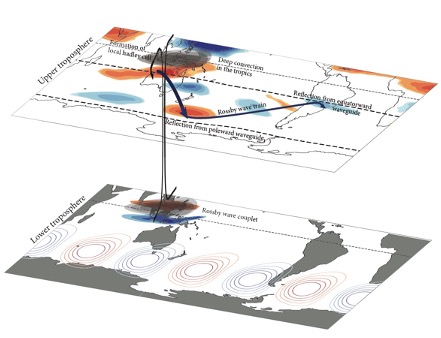
CLEX researchers have overturned a scientific paradigm that has existed for 50 years. New research published in Nature Geoscience shows the massive convection caused by the ocean just north of Australia, causes a chain reaction that is strong enough to put an almost permanent dent in the powerful winds that circle the Antarctic.
-
What is left in the global carbon budget?

The Paris Agreement requires countries to commit to reducing their greenhouse gas emissions to ensure that the global average temperature remains well below 2°C above pre-industrial levels and to pursue efforts to limit the temperature increase to 1.5°C. But how likely are we to meet these targets?
-
Special briefing: Intergovernmental Panel on Climate Change 6th Assessment Report
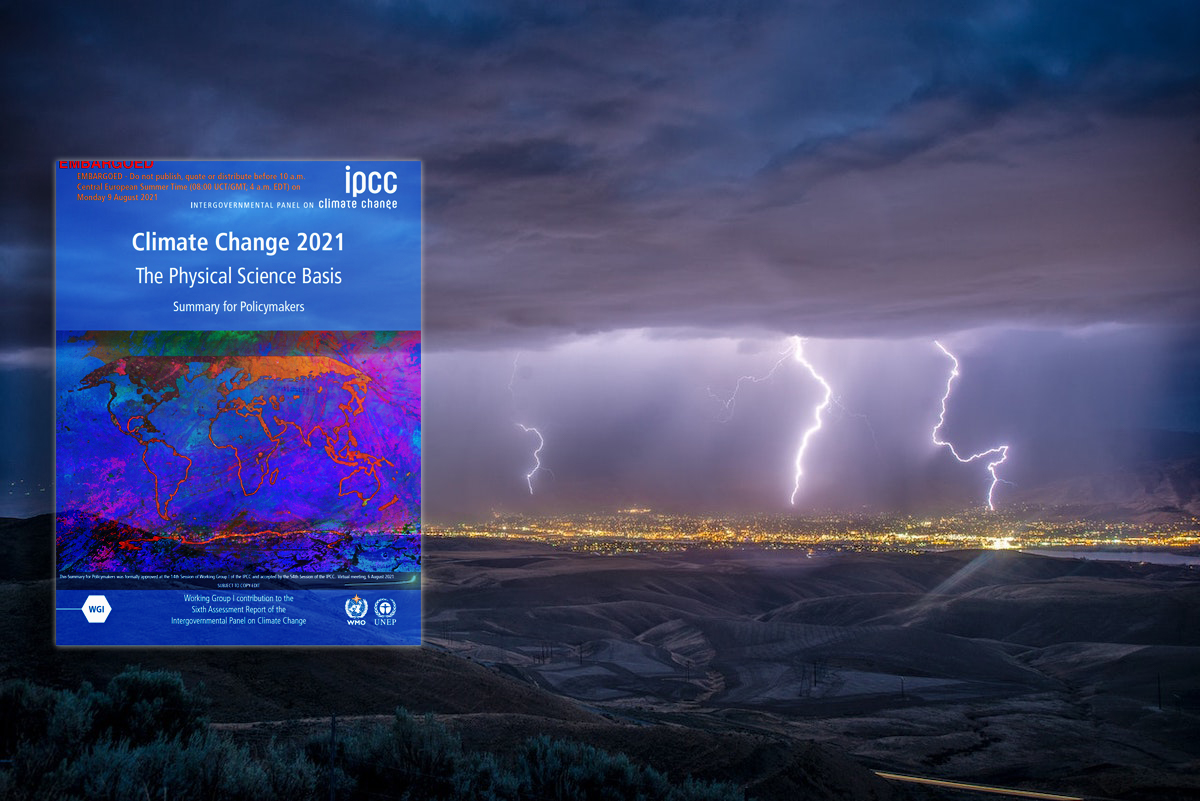
Australian researchers in the ARC Centre of Excellence for Climate Extremes have made major contributions to the 2021 IPCC Working Group 1 report, through the authorship of the report, review and the many scientific papers cited in the report.
-
Yes, a few climate models give unexpected predictions – but the technology remains a powerful tool
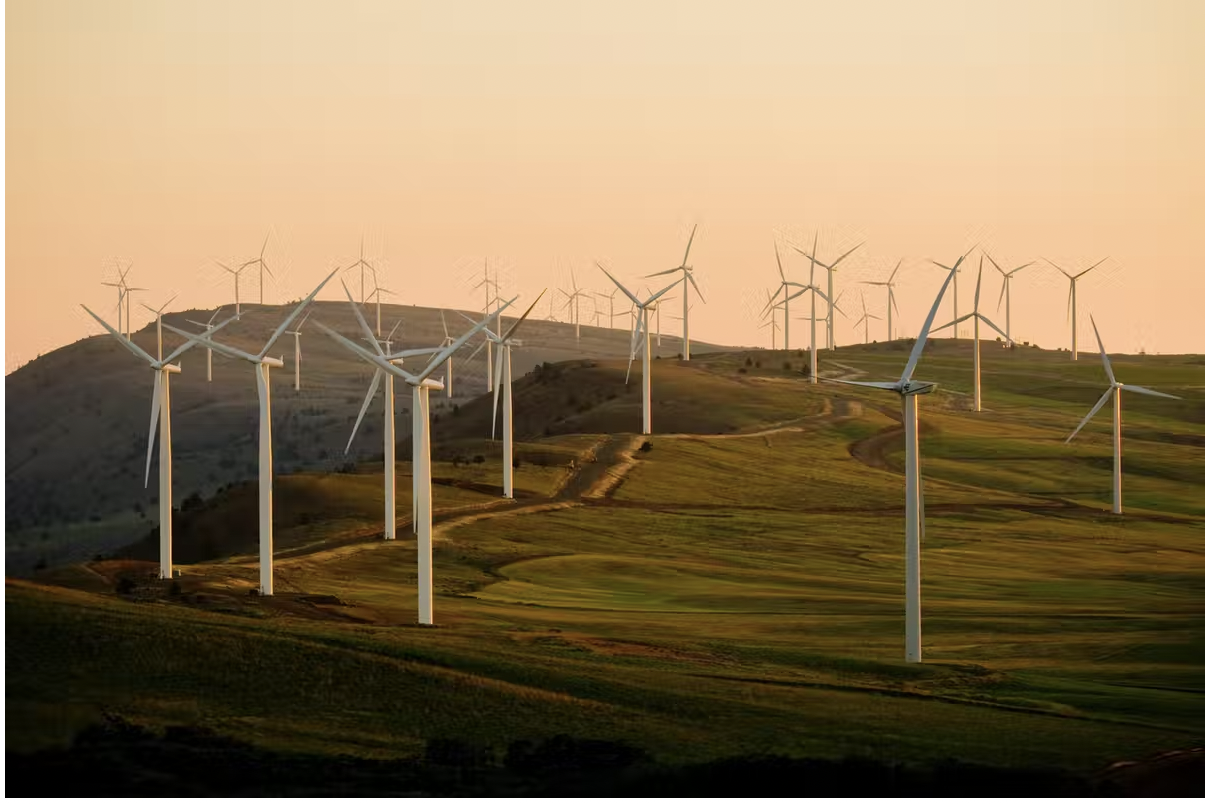
Nerilie Abram, Australian National University; Andrew King, The University of Melbourne; Andy Pitman, UNSW Sydney; Christian Jakob, Monash University; Julie Arblaster, Monash University; Lisa Alexander, UNSW Sydney; Sarah Perkins-Kirkpatrick, UNSW Sydney; Shayne McGregor, Monash University, and Steven Sherwood, UNSW Sydney The much-awaited new report from the Intergovernmental… View Article
-
A List of Common Unspoken Knowledge for Postgrad Climate Students

Kim Reid offers a useful list of common unspoken knowledge for postgraduate students in the climate sciences. Hopefully, she says, this will save you some time and mistakes in the future.
-
Briefing note 15: Can we limit global warming to 1.5C°?

Irrespective of tipping points, climate change adaptation efforts will be less costly and disruptive to society – and will stand a better chance of success – if warming can be limited to 1.5°C rather than 2°C or higher. We therefore in no way advocate for policies that forgo pursuing the ambition to limit global warming…
-
Climate Australia: Episode 1 – Is climate to blame?
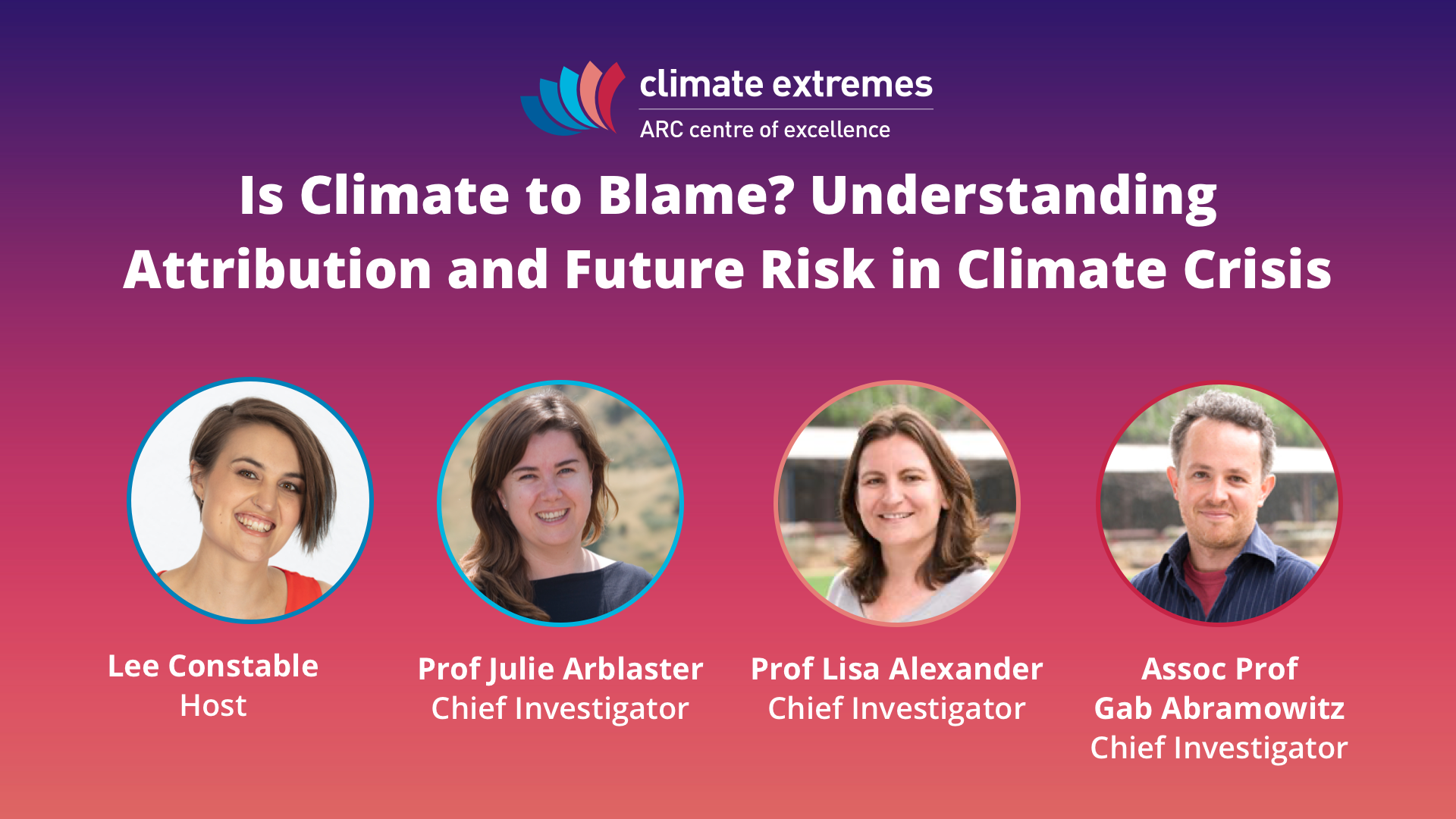
Prof Julie Arblaster, Prof Lisa Alexander, and Assoc Prof Gab Abramowitz discuss the research around the Attribution and Risk research program. The episode explores why we can detect climate signals in some extreme weather events and not others and the implications this has for understanding how these events may change.
-
The latest global climate models present challenges for generating climate projections

Climate sensitivity describes how sensitive the Earth’s temperature is to a doubling of the amount of carbon dioxide in the atmosphere. One measure of climate sensitivity for projections of future climate is the Equilibrium Climate Sensitivity (ECS). ECS is the increase in the global average temperature between the pre-industrial era and a future doubled carbon…
-
Developing and publishing open-source software and my experience with an open peer-review process

Navid Constantinou developed a new Julia package that provides solvers for geophysical fluid dynamics problems in periodic domains. It was also the first time he had been involved in an open peer-review process, and this experience was “mind changing”.
-
800m Simulation of 2017 heatwave – video & transcript
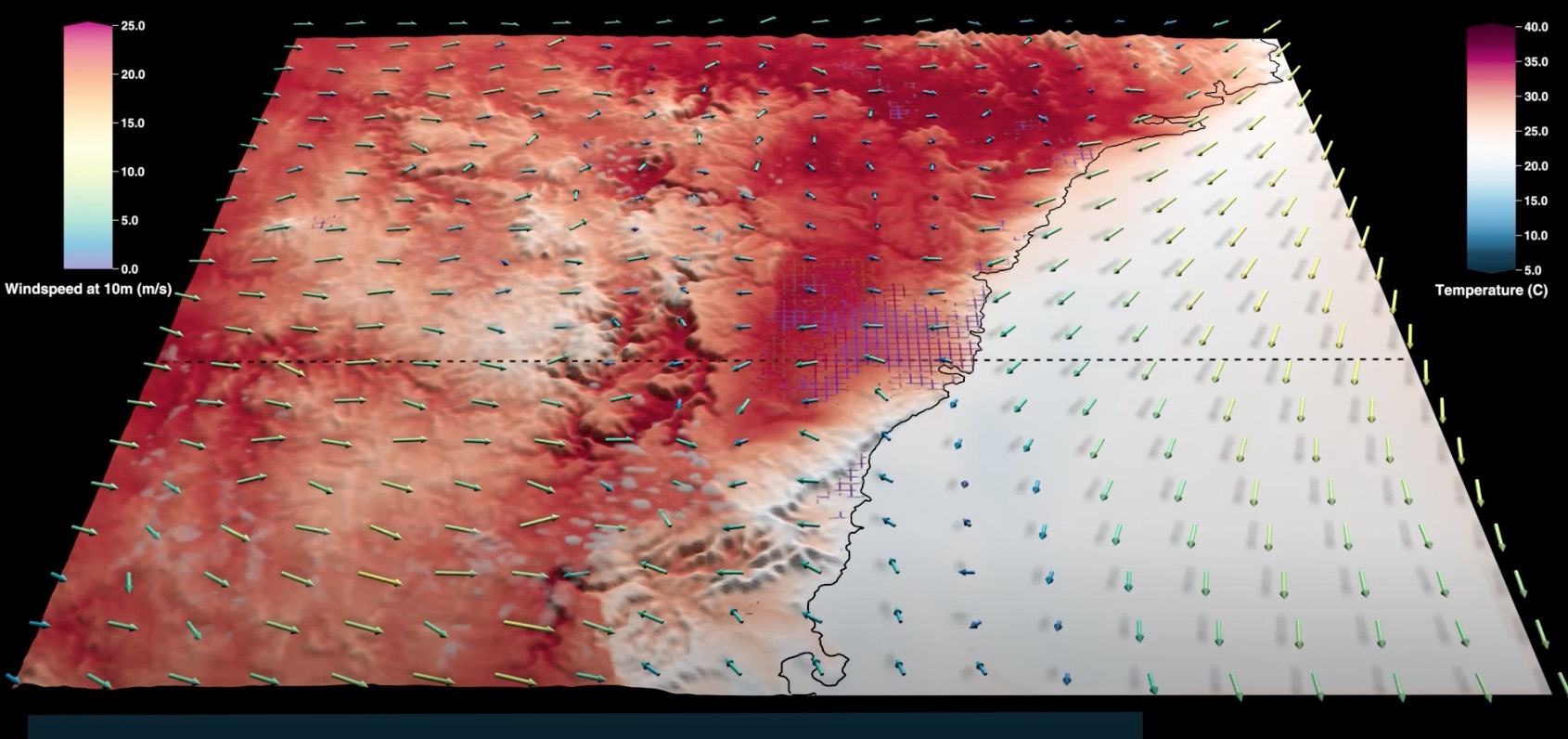
Research by Annette Hirsch into heatwaves over Sydney has been turned into a spectacular animation by Drew Whitehouse from NCI Vizlab.
